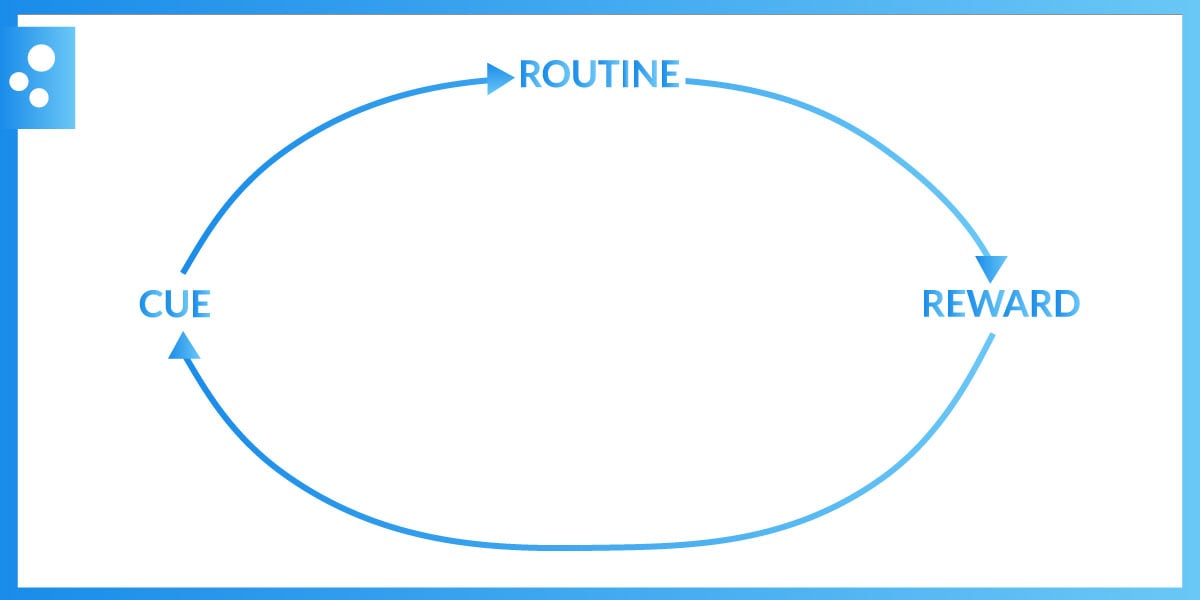The new year is always something to look forward to, isn’t it? It’s the perfect time to begin a new adventure and make resolutions to be healthier and better. But here’s the truth about New Year’s resolutions – a massive 80% fail!1 That’s a crazy statistic, right? The question now is how can we join the 20% who succeed? Can a habit-change approach help us achieve our goals for the new year? Let’s find out in this blog post!
Table of Contents
What are habits and how do they form?
According to the Greek philosopher Aristotle, “we are what we repeatedly do.” This is the very definition of a habit – routine behaviors that we do automatically without consciously deciding to do them.
Habits can either be good or bad. Good habits help improve your productivity and your quality of life. Bad habits, on the other hand, like smoking and eating unhealthy foods, can be detrimental to your health.
We are literally creatures of habit, and they shape our lives. You MUST break away from your old, bad habits to reach your goals for the new year.
According to Charles Duhigg, a 3-part neurological loop drives every single habit:2

- The ‘cue’ is the trigger that prompts you to do the next step.
- ‘Routine’ is the immediate action you take after you receive the cue.
- The ‘reward’ is what your brain gets from doing the routine, for instance, a feeling of satisfaction or pleasure.
Identify all 3 elements and you’ll be closer to a successful habit change, bringing you closer to achieving your New Year’s resolution.
Tips to make the habit change approach work for your New Year’s resolutions
Want to finally achieve your New Year’s resolution? Follow these habit-forming tips!
(1) Know your “why”
Why did you choose a particular resolution? Why not another one? Before you settle on a resolution, figure out your “why.” It will serve as your reminder and drive you to reach your goals!
Here’s an example:
- New Year’s resolution – avoid processed foods and start eating whole foods only
- Why – you want to live long enough to see your kids grow up
Whenever you think about wolfing down a massive serving of French fries or consuming a whole bag of Doritos, look at photos of your kids on your phone. That way, you get a reminder of why you’re doing your diet.
(2) Start small instead of aiming for big goals right away
Following the example above, instead of cutting out all processed food immediately, do it slowly. Highly processed food can be highly addicting, and you may experience food withdrawal symptoms.3
It’s much harder to stop cold turkey, so give your body a chance to say goodbye to your favorite processed foods and adjust to a new diet.
Plan to take your vitamins every day. Start drinking more water. Just start with small changes and let your body adjust. You’re gonna love the process.
Related article: Are Supplements The Secret To A Better You In The New Year?
(3) Pick a single, realistic goal
Instead of aiming to achieve 4-5 New Year’s resolutions, why not choose one? Pick a realistic goal, something you can actually achieve with the resources you do have.
For example, it’s fine to aim for a 50k ultra marathon next year. But is it feasible for you? A lot of planning and training go into marathons. Depending on your condition, it may be a more realistic goal if you aim for a 5k race instead.
(4) Implement the 21/90 rule
The 21/90 rule states that you need to do the new routine for 21 days straight to turn it into a habit and then continue doing it for the next 90 days to make it a permanent lifestyle change. This isn’t contradictory to Lally et al.’s findings that habits take 18 to 254 days to form.4 If anything, the said study supports the 21/90 rule.
(5) Create a detailed plan of action
You need an action plan to achieve your New Year’s resolution. You’ve already identified your goal and your “why.” Now it’s time to list all the steps you need to take to nail down your new habit.
As mentioned earlier, figure out your cue and then carry out the new routine. Each day, you will need to make a conscious decision to do the routine, and you will need to foster that decision with motivation and willpower. By doing that, you will slowly but steadily change your habits.

(6) Make your environment conducive to success
If you’re trying to start eating healthier, you don’t want to be surrounded by all the food you try to avoid. So, clean out your pantry and remove all the processed and junk foods in there.
Then, when you go for your grocery runs, stick to the healthy food aisle. Or just start shopping for fresh produce at the farmer’s market!
Moreover, if you want to ensure you’re getting the right amounts of essential nutrients, consider purchasing high-quality supplements to help fill gaps in your diet.
(7) Develop a support system
Ask someone you trust to help you be accountable. On days when you feel like a failure, they can help motivate you to continue pursuing your goals for the new year. Also, it’s better if it’s a two-way street – help your friend be accountable to their New Year’s resolution as well. Maybe try to have a little competition going. It may help light a fire under both of you!
(8) Enjoy the process
It will be much easier for you to reach your goals if you actually enjoy what you’re doing. Even if you’ve identified your “why”, you’ll still find it difficult if you don’t particularly enjoy the routine. So, it’s important to actually enjoy the whole process – you’ll be more likely to succeed if you do!
Conclusion
While a habit-change approach can help you achieve your New Year’s resolution faster, your success will ultimately boil down to your willpower and self-discipline. You will need to make a conscious effort in the beginning. But after a few weeks of consistent action, you’ll do the new habit automatically.
References:
- Tabaka, Marla. “Most People Fail to Achieve Their New Year’s Resolution. For Success, Choose a Word of the Year Instead.” Inc.Com, 6 Feb. 2020, www.inc.com/marla-tabaka/why-set-yourself-up-for-failure-ditch-new-years-resolution-do-this-instead.html. ↩︎
- “How Habits Work.” Charles Duhigg, 20 Nov. 2017, charlesduhigg.com/how-habits-work. ↩︎
- Schulte, Erica M., et al. “Development of the Highly Processed Food Withdrawal Scale.” Appetite, vol. 131, 2018, pp. 148–54. Crossref, doi:10.1016/j.appet.2018.09.013. ↩︎
- Lally, Phillippa, et al. “How Are Habits Formed: Modelling Habit Formation in the Real World.” European Journal of Social Psychology, vol. 40, no. 6, 2009, pp. 998–1009. Crossref, doi:10.1002/ejsp.674. ↩︎




